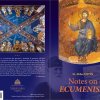In 1985, Vlade Divac was one of 15 young boys from Slovenia, Bosna, Serbia, Montenegro, Croatia and Macedonia that won the gold medal in the University Games. This would prove to be a basketball team that is considered among the best ever assembled. They went on to win a gold medal at the European Junior Championships in 1986, a gold medal at the FIB A World Junior Championships in Bormio, Italy in 1987 (defeating Team USA twice in that tournament), and a silver medal representing Yugoslavia at the 1988 Olympics.
After being drafted by the Lakers in 1989, Divac went on to enjoy a 16 year tenure as one of the game's best centers. A highly popular figure on and off the court, he put together an impressive resume playing for the Lakers, the Charlotte Hornets and the Sacramento Kings.
He started his career by being named to the NBA All-Rookie First Team and he finished it having joined Hakeem Olajuwon and Kareem Abdul-Jabaar as the only players in NBA history to amass 13,000 points, 9,000 rebounds, 3,000 assists and 1,500 blocked shots.
Along the way he also managed to lead Yugoslavia's teams to a silver medal at the 1996 Olympics in Atlanta, gold medals at the 1990 and 2002 FIBA World Championships, and gold medals at the 1989, 1991 and 1995 European Championships.
In the early morning hours on September 16th, 2005 a truck driven by Divac arrived at an emergency response center hosted by St. George Antiochian Orthodox Church in Houston, Texas. The truck contained items collected by volunteers in Sacramento, various items such as paper plates, paper towels, toilet paper, baby diapers, wipes, baby formula, baby food, school supplies and toys; donations which would provide a little comfort and normalcy to children and families who had traveled far from their homes in search of safety.
But Vlade Divac was no ordinary volunteer. In conjunction with an organization he helped found, he put together the collection effort in Sacramento. That organization is Group Seven, a Children's Foundation that provides care for children who suffer from isolation, poverty and displacement. The founding members of Group 7 include: Vlade Divac, Predrag Danilovic, Aleksandar Djordjevic, Zarko Paspalj, Zeljko Rebraca, Dejan Bodiroga, and Zoran Savic. These athletes have joined together to offer care and comfort to children suffering from the isolation, poverty and displacement inherent to the break-up of Yugoslavia.
He has also worked on projects for the International Orthodox Christian Charities, another organizer of the Sacramento volunteer efforts. He has helped the IOCC provide half a million dollars in humanitarian assistance to his homeland since 1997. For his years of distinguished service in support of the humanitarian mission of IOCC, he received their Good Samaritan Award.
Divac also created a fund through the St. John Foundation to help raise money for children affected by the war in Yugoslavia.
He and his wife have four children, two of which are war orphans, from Bosnia and Kosovo.





